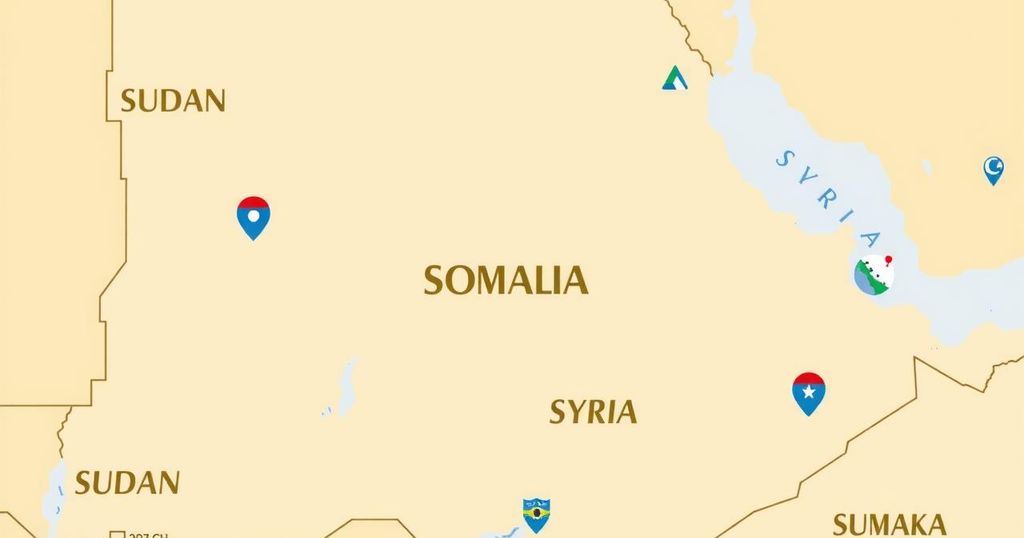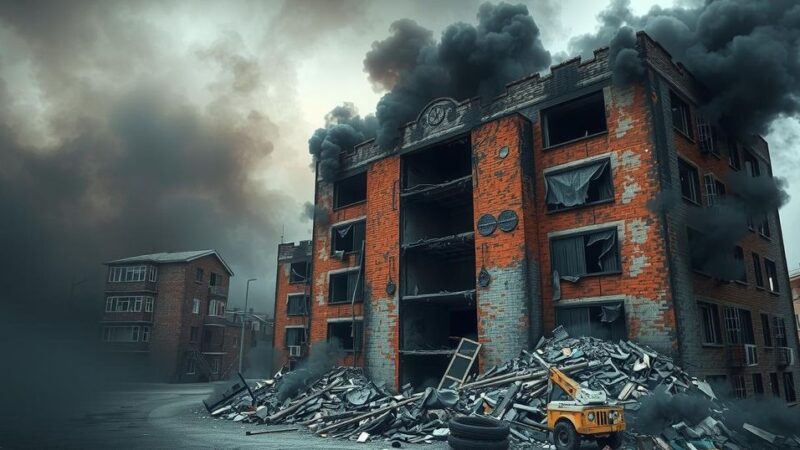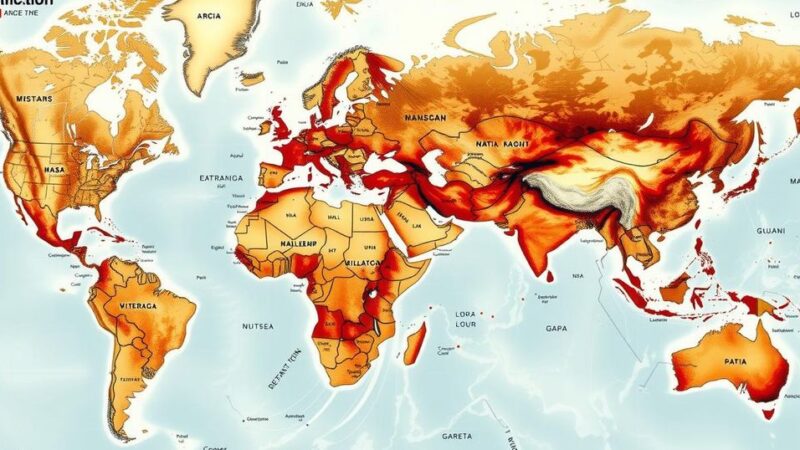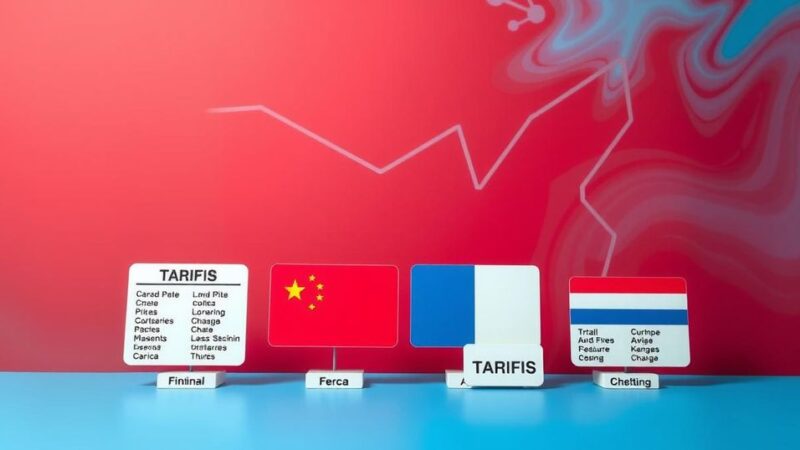The U.S. and Israel are considering Sudan, Somalia, and Syria for resettling Gazans amidst ongoing discussions about ending the Israel-Hamas conflict. President Trump reassured no Palestinians would be expelled while signaling a potential permanent exit strategy. Mixed responses from the proposed countries raise concerns about the humanitarian implications and political repercussions of such actions.
The United States and Israel are exploring Sudan, Somalia, and Syria as potential locations for resettling Palestinians displaced from Gaza, according to multiple anonymous sources. This initiative is part of broader discussions by the Trump administration concerning strategies to conclude the ongoing conflict between Israel and Hamas and facilitate the reconstruction of Gaza.
President Trump emphasized that there would be no expulsion of Palestinians during a recent press conference, countering concerns stemming from his previous comments regarding the ownership of Gaza. He suggested that potential resettlement could assist in alleviating the humanitarian crisis faced by the 1.8 million Gazans.
Israeli and U.S. officials reportedly communicated their resettlement interests to Sudan and Somalia. Senior Israeli figures have advocated for Palestinian migration from Gaza, claiming that Trump’s statements have encouraged exploration of resettlement options with other nations. Interest has also been noted in Syria, with outreach potentially made to its interim government via third parties.
However, official responses from the involved nations have been mixed. The Somali ambassador to the U.S. stated that his government had not been approached about the relocation of Palestinians, citing concerns that such rumors might increase recruitment for extremist groups. The Sudanese government has yet to reply to inquiries regarding this matter.
Trump has indicated that his administration envisions a permanent exit strategy for Palestinians, noting conditions in Gaza remain unsuitable for habitation. This assertion follows grim reports from the UN indicating extensive destruction in Gaza, with over 90% of its housing compromised and significant civilian casualties reported.
Responses from various Arab leaders and humanitarian organizations regarding Trump’s proposal have been critical, with some labeling it as ethnic cleansing. They favor alternative post-war reconstruction plans, which have been rejected by the Trump administration, highlighting the challenging situation in Gaza.
Former President Biden’s administration had previously engaged with the Syrian government, but these efforts ceased with Trump’s term. The new Syrian leadership has condemned Trump’s resettlement ideas, calling it a serious crime. Experts encourage direct engagement with Damascus to mitigate further regional instability.
Israel has conducted operations within Syria, targeting Iranian-backed entities. A U.S. State Department representative noted ongoing efforts by Middle East special envoy Steve Witkoff, who is exploring alternative policies that promote better living conditions for Gazans. There are indications that other countries are expressing willingness to accommodate Pwresidents of Gaza during these discussions.
Recent reports highlight ongoing dialogues regarding the relocation of Palestinians, reflecting a larger trend of displacement in the region. Calls from far-right Israeli ministers for further territorial actions against Palestinians underline a complex humanitarian crisis and its implications for regional security and stability.
In summary, the exploration of resettling Gazans to Sudan, Somalia, and Syria signals a significant approach from U.S. and Israeli authorities addressing the humanitarian crisis in Gaza. While discussions reflect a desire for long-term solutions, they have garnered considerable criticism, emphasizing the complexity and sensitivity surrounding the Palestinian issue. Statements from officials in affected countries indicate reluctance to engage with such proposals, suggesting a wary international response to the plans put forth by the Trump administration.
Original Source: www.cbsnews.com






